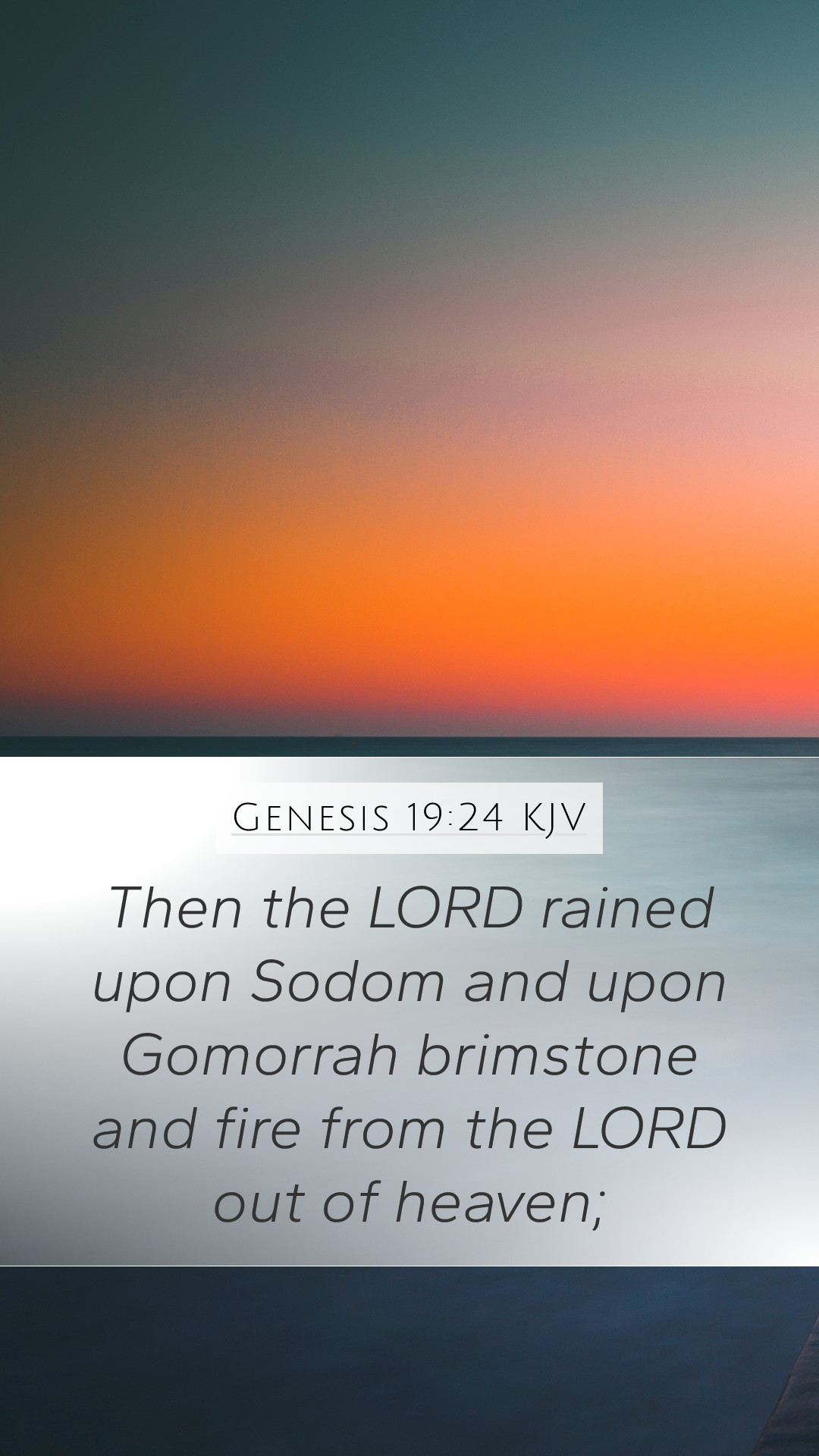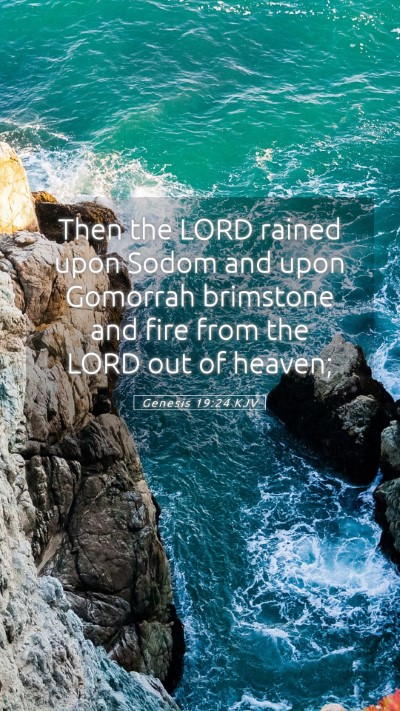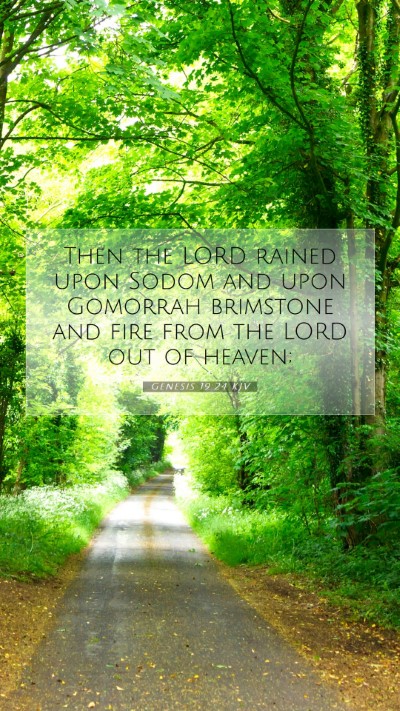Understanding Genesis 19:24
Genesis 19:24 states, "Then the Lord rained upon Sodom and Gomorrah brimstone and fire from the Lord out of heaven."
This verse is famous for its dramatic depiction of divine judgment. It marks the culmination of a narrative where the wickedness of the cities of Sodom and Gomorrah has reached its peak, prompting God's decisive action.
Bible Verse Meanings and Interpretations
The phrase "the Lord rained" suggests a powerful intervention from God, emphasizing His sovereignty over creation. The use of "brimstone and fire" is rich in symbolism. It signifies not only destruction but also purification, as fire often represents God's judgment upon sin.
Insights from Public Domain Commentaries
-
Matthew Henry's Commentary:
Henry notes that this event highlights the severity of God’s wrath against sin. He emphasizes that the radical action taken against these cities serves as a warning for future generations about the consequences of living in rebellion against God. The term "rained" indicates a sudden and overwhelming calamity, mirroring divine judgment.
-
Albert Barnes' Notes:
Barnes elaborates on the significance of fire and brimstone, which were commonly associated with judgment in biblical literature. He compares this event to other biblical instances of divine judgment and reflects on the moral implications of such severe consequences for gross iniquity. His interpretation serves to remind readers of God’s unwavering justice.
-
Adam Clarke's Commentary:
Clarke provides a historical context, suggesting that the destruction was not merely a punishment but a necessary act to preserve the moral integrity of the world. He draws parallels with other scriptural accounts of judgment, reinforcing the notion that God's actions are deliberate and purposeful.
Theological Significance
The destruction of Sodom and Gomorrah is often referenced in discussions about divine justice and mercy. The stark reality of God’s judgment serves as a reminder that while God is loving and merciful, He is also just, and He cannot overlook sin.
Application of the Verse
For contemporary readers, Genesis 19:24 calls for a personal reflection on the nature of sin and judgment. It challenges believers to examine their lives in light of scripture and to consider the importance of living righteously.
Cross References
- Genesis 18:20-21 - God's intention to investigate the outcry against Sodom and Gomorrah.
- Luke 17:29 - Jesus references the fate of Sodom in the context of His second coming.
- 2 Peter 2:6 - Acknowledgment of Sodom and Gomorrah as examples of divine judgment.
Conclusion
The understanding of Genesis 19:24 provides deep insights into biblical themes of judgment and morality. Its significance extends beyond the historical account, prompting believers to engage in bible study and her theological implications. By studying this verse, one can gain a better understanding of divine justice and its relevance in today’s world.
Bible Study Resources
For those interested in further exploration, consider utilizing:
- Bible study guides focusing on the narratives of the Old Testament.
- Online Bible study tools for in-depth scripture analysis.
- Bible study groups for collective understanding and support.
FAQs about Genesis 19:24
- What does Genesis 19:24 mean? It describes God's decisive judgment on the wicked cities due to their grave sins.
- What is the significance of the fire and brimstone? They symbolize God's judgment and the severity of His wrath against sin.
- How can this verse apply to my life? It encourages personal reflection on one's own life and alignment with God's moral standards.


